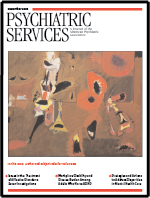We strive for our place in creation, a space, an identity, an achievement that helps lift us beyond the mundane and the dangerous. But the ambition to obtain and maintain our place requires an attention and struggle that pulls us away from the very transcendence and bliss that our space was to provide. And in our struggles we at times forfeit our truest places, or force those we love to forfeit theirs, and we crash.
These are the themes I discovered in my reading of The Body of Jonah Boyd, along with destiny, legitimacy, the co-creative nature of narrative, the poverty of pretense, love as bestowal, the nature of inspiration, the destructive or saving power of the imagination, and the role of usurpers. Along the way there is sensitively presented an intimate pageant of oedipal reenactments, small shops in Venice, draft dodgers, cars that won't run backwards, hot air balloons as flying beds of love, murderers, lost children, astute secretaries and oblivious Freudians, and the besieged Madame Carcas throwing her squealing medieval pig over fortress walls.
Something that is the body of Jonah is sure to be swallowed into a dark place, only to be coughed up, and then, like that reluctant prophet or red kryptonite, to have metamorphic consequences for all of those involved. The something that is "Boyd's body" is his talismanic-almost-to-be-finished-novel. Like Mozart's scores, the novel is composed in elegant unedited handwriting, contained in four Venetian-made journals, which in and of themselves are evocative of Renaissance beauty and proportion. In his love, Boyd carries them everywhere. In his love, he is losing them everywhere. After once again losing and finding his novel, Boyd and his wife arrive late to the home of Ernest Wright, a Freudian psychologist and professor. Boyd gives a reading to Wright and his family from the novel that is to lift into flight his up-until-now grounded career as an author. Beginning with the phrase "to make love in a balloon," he entrances his small audience with his descriptions of things he has never seen nor done. But the balloon has to come down, and the next day Boyd once again loses the novel, this time for good.
What happens to the lost novel, and how it reshapes the destinies of those around it, becomes the plot of the book as told through the voice of Denny, Dr. Wright's secretary, who becomes a part of the Wright family but silently yearns to belong forever in the Wright home. Through the narrator's keen and compassionate eye for motivation, character, and relationship, we come to know the Wrights, their hoped-for places, their sins, and their graces. As Jonah Boyd says of his novel, "It's about the Apollonian desire to touch the sun and the forces that seek to suppress it, to push us earthwards." And so it is. And about how we get by anyway.

